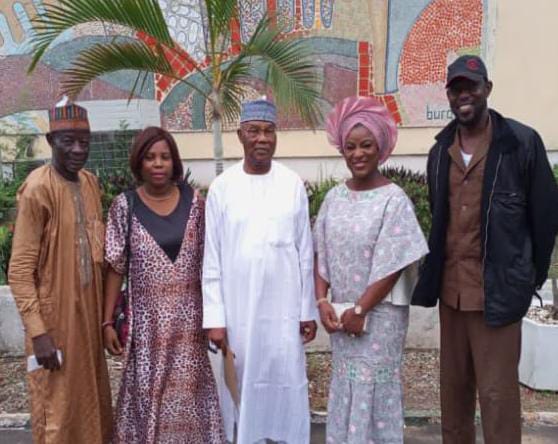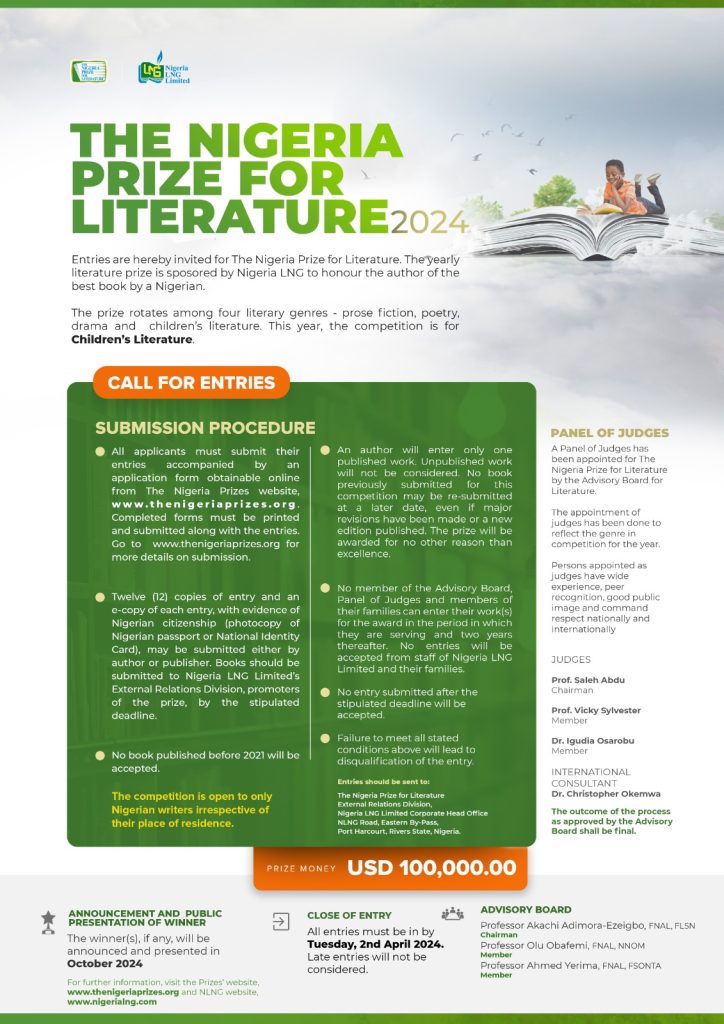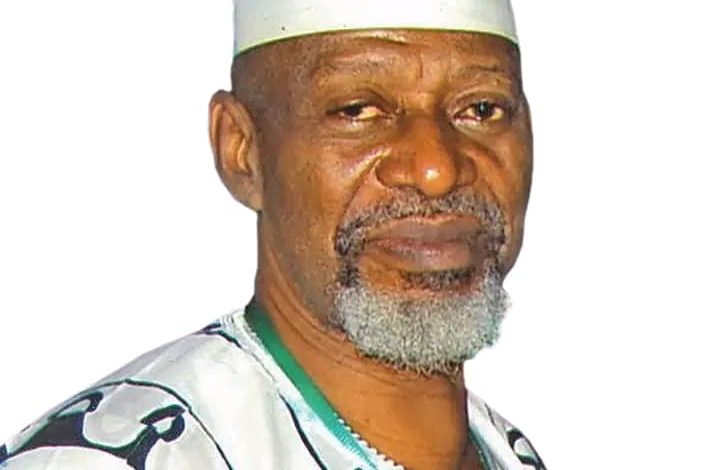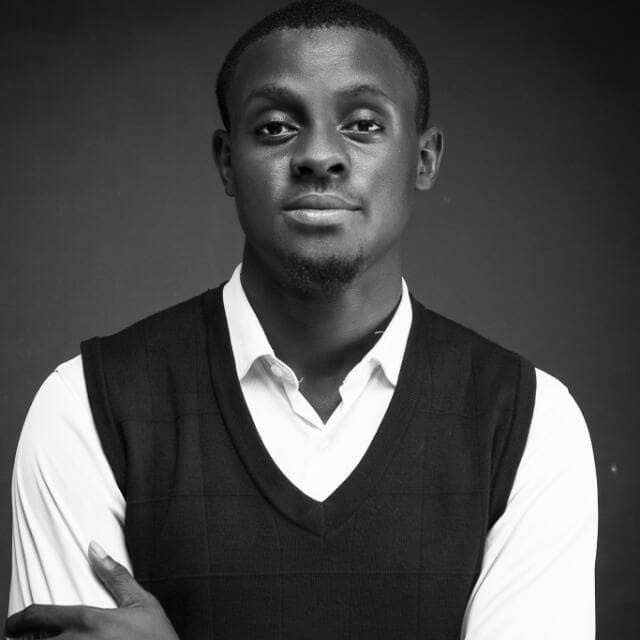Go back to the roots, write in African tongues, says PAWA

Honoree, Dr. Bukar Usman, backs mother tongue writing initiative

COUNTDOWN TO APRIL 2 ENTRY DEADLINE: 10 DAYS TO GO!
By Muhammad Hamissou
IT was on June 25, 2022, that members of Pan African Writers’ Association (PAWA) from 36 African countries conducted their Annual General Meeting in Ibadan, Oyo State, South-West, Nigeria. In a communique, the association called on African writers to go back to their roots and start writing books in their African mother tongues. This is in order to unchain Africans from the shackles of colonialism, more especially in the areas of literature and history. Dr. Bukar Usman is a renowned writer in Nigeria and is among the notable writers honored by PAWA during the conference. Dr. Usman lent his voice concerning the issues discussed during the conference when he said:
ALL the issues discussed by the members of the Pan African Writers’ Association are positive and in order. They call the attention of our writers to henceforth start writing in their mother tongues. The discussants said it is high time for African writers to put a stop to writing in English, French and Arabic languages. Instead, they should focus their pens and begin to write in African languages.
By this stance, does that mean they want to unchain African literature from the shackles of colonialism?
Exactly, it’s right. That’s the aim. We say it’s enough now. There was even one writer, a Kenyan (writer, Ngugu wa Thiong’o) that was furious and disheartened about the whole thing. In protest, he even stopped professing Christianity. He writes in his Kenyan (Kikuyu) mother tongue. The event took place for the past two decades. He protested and said it’s enough. We can’t continue writing our thoughts in foreign languages like before. He made it clear that independence is all inclusive not just mere political. It has to be in our culture, traditions and literature. He said a person writing in his mother tongue is more meaningful and direct. That’s what he meant by his protest.
So, what do you wish to see from Nigerian and indeed African writers that write in their indigenous languages?
Yes, I back the effort and initiatives of the association. That’s is to say, we ought to be writing in some of our indigenous languages. For instance, people of Germany, China and the likes, are they not writing in their indigenous languages? So why not us? Why can’t we write in our own, too? It’s a fact when one writes in his mother tongue, it sharpens his thinking capacity more than when he writes in a foreign language. It’s high time we woke up from our slumber. What I observe in Nigeria that cripples our writers from using indigenous languages in their writings is because we have more than 250 languages. Our dilemma lies in the choice of a particular language to use. That’s what causes the hesitation. If not for that, our people really want to see writers putting their thoughts, using our indigenous languages.

Daily Trust Correspondent in Ibadan, Mr. Kabir Yayo Ali (left); Mrs. Yetunde Anifowoshe of BookCraft Publishers, Ibadan; Dr. Bukar usman; his wife, Mrs. Raliat Dupe Usman and recently diceased Muhammad Salissou Hamissou of Radio France International (RFi) at Pan-African Writers Association (PAWA) Literature Conference held in Ibadan on June 25, 2022
But some people may say it’s too late. How do you see or what can you say about that?
Too late for who? If it’s we, for example, that by the end of the year I’m clocking 80 years, one can say that it’s too late for me but for the incoming generations, how can one say it’s too late for them? Who told you the world is coming to an end these days? There are a lot of journeys ahead and therefore it’s not too late at all. One can refer to our generation but not the incoming ones.
Richard Ali A. Mutu K. is the director of Wallonie-Bruxelles Library Foundation in Kinsasha, Democratic Republic of Congo. He says it is the right time for PAWA in taking the desirable decision for Africa to go back to its roots. Writers should write in African mother tongues.
Concerning the issue of writing in African indigenous languages, it’s a step in the right direction, because I am a writer from Francophone country. I write in both French and my mother tongue, Lingala. The latter is a famous language in Central Africa that gains supremacy around the year 1994. I had the opportunity to write a book in Lingala language, titled Ebamba Kinsasha Makambo (Isolo) and because of the book I was invited to attend an African Conference 39 in Port Harcourt, where I introduced it. Therefore, this is an important and a big assembly and the topic discussed is equally powerful and important, too. This is because when African writers unite, I think by virtue of their calibre as intellectuals, and if they write in African mother tongues, they will contribute a great deal to the development of Africa.
If you notice, African Union officially recognizes Swahili, English, Arabic and Portuguese but sometimes the Union shies away from adding more African languages to be recognized officially. But this recent stance can be described as a step in freeing Africa from the clutches of colonialism. We can say that because if you consider, for the past 60 years, we are still reluctant to make official our indigenous languages. To me, this is very outrageous. African countries had gained independence for the past 60 years and so it is high time for us to start using our indigenous languages officially to run day-to-day government activities.
In Nigeria, for instance, it is not right to feel shy in making Yoruba as official language. In Democratic Republic of Congo, it’s not right to shy away from recognizing Lingala as official language for deliberations in legislative assembly. I think for now, as writers begin to write in their indigenous languages, it is good sign that in the years ahead, African writers will write all their books using indigenous languages. Therefore, the Pan African Writers’ Association has set a new and important pace. More so, I think the association is about to break a big record worthy to remember in history. Thank you.
Turning to Dr. Usman again, he responded to how he felt as one of the honored writers by Pan African Writers’ Association and he responded thus:
I thank Allah for giving me the opportunity to receive the award. I have never thought to be among the recipients but three weeks ago I got the letter brought to me in Abuja by the Secretary General of the association, Dr. Wale Okediran. I showed my appreciation to him and accepted.
Were you informed why they chose to honor you?
What they informed me was that they wanted to honor me for my efforts and dedication in promoting Nigerian folklore/literature in particular and African in general. That’s what they told me.
We heard about your recent work, Taskar Tatsuniyoyi. Are they referring to it?
Taskar Tatsuniyoyi is one of them but they have reviewed all my literary works. They have all the copies of my published books and they have added them in their gallery as displayed along with books by others. The Secretary General, Honorable Wale Okediran has got almost all my 20-30 published books.
One of your literary works includes the collection of fables sourced from various sections of Nigeria. How soon are you publishing it?
Some of these works were translated into Hausa language, some were written in English. There are some of my works written in English and translated into Igbo and Yoruba. There is plan for them to be published before the end of this year. They are of a pamphlet size.
* A discussion with Dr. Bukar Usman. On behalf of all that participated in the programme, including Richard Ali Mutu K, a writer from Democratic Republic of Congo, I, Muhammad Salissou Hamissou, with all the staff of the Hausa Section of Radio France International (RFi). This is an edited transcription of the special radio programme by Muhammad Salissou Hamissou on Radio France International (Hausa) in June, 2022. It was originally broadcast in Hausa and transcribed into English by Bashir Yahuza Malumfashi who published it in Taskar Gizago online at https://taskargizago.com.ng/2024/03/18/go-back-to-the-roots-write-in-african-tongues-pawa/



